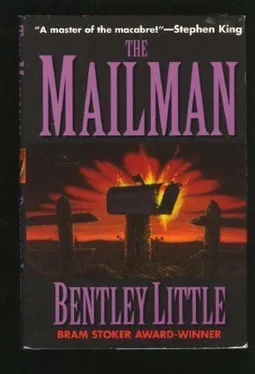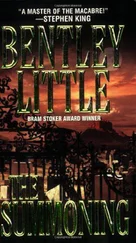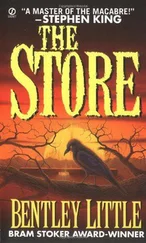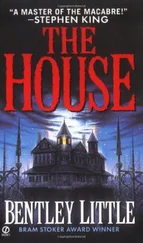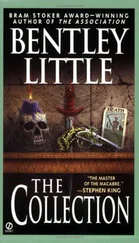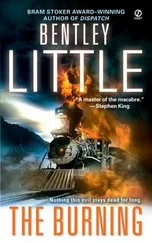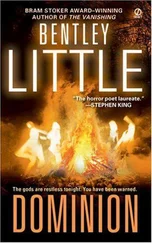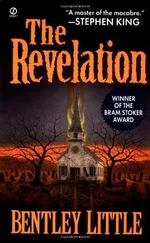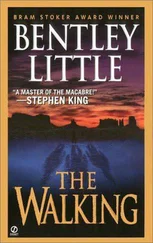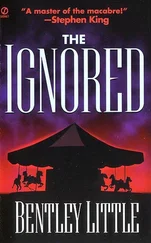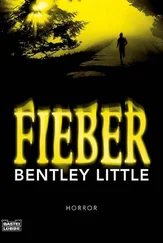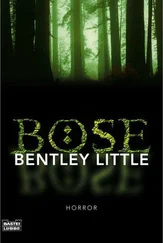"Please," Tritia begged.
"It's my house. I want you out of here."
"I'm your friend."
"You _were_ my friend."
"I'll call the police and tell them what I've seen and they'll come in here anyway."
"You do what you have to do."
Tritia felt like crying with frustration. She yelled at her friend. "Can't you see what's happening here? Can't you see what the mailman's doing?"
"I see better than you. Please leave now."
Tritia allowed herself to be pushed out the doorway. She remained on the porch for several minutes after the door was slammed shut, after she heard the sounds of locks and latches being drawn. She thought about the boxes in the den.
The mailman might just be trying to scare her. They might not really contain body parts.
But they might.
What were they going to do? They couldn't just sit around until they were all knocked off or driven crazy. Something had to be done. But what? The police were no help. Apparently the higher-ups in the Postal Service weren't either.
Maybe someone should kill him.
The thought came, unbidden, but though she tried to push it away, tried to tell herself it was wrong and unmoral and illegal, the idea stayed with her.
And by the time she had driven home it was starting to sound pretty damn good.
39
The phone rang, and Doug was awake instantly. He reached over Tritia 's sleeping body and picked it up in the middle of the second ring. A feeling of heavy foreboding had awakened with him, and he glanced at the clock on the dresser as he brought the receiver to his ear, thinking with the fading vestiges of dream logic that he needed to remember the time of this call.
Two-fifteen.
"Hello?"Dpug said. His voice was tired, tinged with annoyance at being disturbed, but there was an edge in it as well as he prepared himself for bad news. No one called at two-fifteen in the morning if it wasn't bad news.
"Mr.Albin ?" It was Mike Trenton. Doug's throat felt constricted, his chest tight, and he had to force himself to swallow. The policeman sounded strange. Not exactly frightened, but something very close to it.
"What happened?" he asked.
"It's Mr. Beecham. He's, uh, he's dead."
Doug closed his eyes, letting his head fall onto the pillow, unwilling to make the effort anymore to keep it up.
"We found him on the floor of his cell," Mike continued. "His forehead is completely caved in, and there's blood all over the wall and floor. It's hard to tell, but it appears as though he butted his head against the wall until he smashed open his skull.
"We took away his clothes and shoelaces when we admitted him, but he didn't seem dangerous or self-destructive and we didn't think there was any need to restrain him or --"
Doug reached over Tritia 's body and hung up the phone. After a second's thought, he took it off the hook.
"What is it?" Tritia asked groggily.
Doug said nothing but simply stared into space, and a moment later she had again fallen asleep.
He did not sleep until morning.
40
The funeral was short and sparsely attended.HobieBeechain had not been the most popular man in Willis during the best of times, and the mailman's successfully slanderous framing of the auto-shop teacher had obviously taken its toll onHobie's already low popularity rating. As Doug stood next to the open grave, he found himself wondering if anyone would have shown up even if the murder hadn't occurred. The mailman's continued psychic assault on the town seemed to have drained a lot of the energy from people, had made them less social, angrier, less trustworthy. He wondered if even Bob Ronda could draw the crowd today he'd been able to draw a month ago.
That was a strange way of looking at it, to see a funeral as a popularity contest in which final judgment was passed on a man's life by the number of people who attended, by the size of the crowd. But it was also strangely appropriate since many people did judge the worth of others by the quantity of their social relationships. Particularly in a small town like Willis. A man could be rich, famous, successful, but if he lived in Willis and he wasn't married, if he stayed home alone on Friday nights instead of going out with friends or family, there was definitely something wrong with him.
And there had always been something wrong withHobie . He'd admitted it himself, many times. Making friends, as he was fond of saying, was not his major goal in life. Doug found himself smiling, though his eyes were moist.Hobie had been loud, obnoxious, iconoclastic, and fiercely independent. He was who he was, and if someone didn't like it, that was their problem.
He had also been a good friend and a damn fine teacher, and Doug thought that if all of the students whomHobie had taught and befriended, had helped and counseled over the years, were still in town the cemetery would have been full.
He looked over at Tritia . No love had ever been lost between her and Hobie, but she was crying now, and more than the coffin in the ground, more than the gathered mourners, more than the carved tombstone, her tears made him realize that his friend was really and truly gone.
Doug looked into the sky as the tears rolled down his own cheeks, trying to think of something neutral, something unconnected with death, so he would not start sobbing.
Billy was taking it really hard. This time, they had sat him down and discussed it with him and left it up to him whether or not he wanted to attend the funeral. He had almost said yes because he felt obligated, felt he might not be showing how much he cared if he did not attend, but Trish had assured him that they did not expect him to go, that it was not required, thatHobie , wherever he was, would understand, and Billy had elected to stay home. There was no sitter for him this time and both of them worried about leaving him alone, but he promised to keep all the doors locked, the windows shut, and to remain upstairs until they returned. Doug told him that it was all right if he watched TV downstairs or made himself food in the kitchen, but Billy declared with an adamancethat surprised them both that he would not go downstairs until they returned.
The morning, appropriately enough, was overcast, funereal. The storm season was upon them, and the weather from now until fall would be characterized by the dichotomous extremes of dry heat and cold rain. Doug said a few words over the casket, as did several other teachers, and then the nondenominational minister began his eulogy and consecration. Before the minister had finished, light drops of rain were falling, and by the time the graveside service was over it had turned into a real downpour. No one had brought umbrellas, and everyone ran through the cemetery to their cars or trucks.
Doug thought of the cars and car parts sitting inHobie's yard and wondered what would happen to them.
He and Trish were the last to leave the gravesite, and they walked slowly between the stones, even though the rain was coming down hard. They watched Yard Stevens' Lincoln pull out of the parking lot, following the small line of vehicles heading down the road.
Hobie'sparents had not come, although Mike said they had been notified and were the ones who had made all the arrangements, and Doug found himself wondering if perhaps they had missed their son's funeral due to amixup in the mail. It was entirely possible that they had received a letter from the funeral director telling them that, due to scheduling conflicts,Hobie's funeral had to be put back a day, and that they would arrive in Willis tomorrow to find that everything was over, their son buried, services finished.
"He killed him," Doug said aloud. "He killed him as surely as if he put a bullet to his head."
"I know," Tritia said, squeezing his hand.
Doug was silent for a moment as they walked. His shoes sunk in the mud.
Читать дальше
